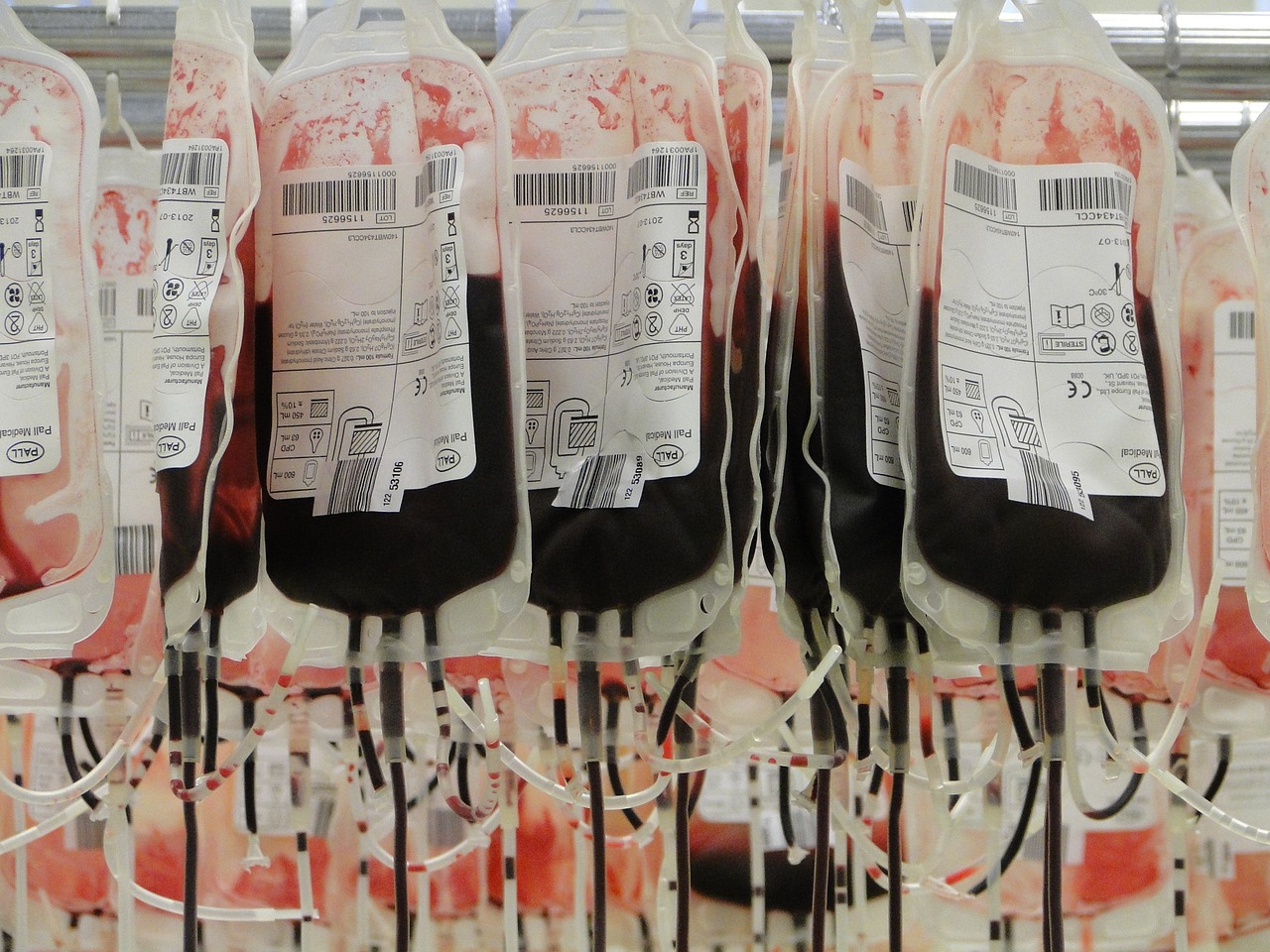This article delves into the important guidelines regarding water consumption prior to a fasted blood test, offering insights from healthcare professionals and addressing frequently asked questions about this critical health assessment.
What is a Fasted Blood Test?
A fasted blood test is a medical examination that necessitates patients to refrain from eating or drinking for a designated period, typically between 8 to 12 hours. This fasting period is essential for obtaining accurate results, particularly for tests assessing glucose and lipid levels.
Why is Fasting Important for Blood Tests?
Fasting is crucial as it helps eliminate variables that could skew test results. For instance, consuming food or certain beverages can lead to elevated glucose levels or altered lipid profiles, which could mislead healthcare providers in diagnosing conditions such as diabetes or hyperlipidemia.
Can You Drink Water Before a Fasted Blood Test?
Most medical professionals agree that drinking water is allowed before a fasted blood test. Staying hydrated can facilitate the blood draw process and does not interfere with the accuracy of test results. In fact, a well-hydrated individual often has better blood flow, making it easier for healthcare providers to obtain a sample.
Benefits of Staying Hydrated
- Improved Blood Flow: Adequate hydration helps in expanding blood vessels, making veins more prominent.
- Reduced Risk of Fainting: Staying hydrated can prevent dizziness and fainting during the blood draw.
How Much Water Can You Drink?
While there are no strict limitations, it is advisable to consume plain water in moderation. Avoid drinks with additives, such as coffee or tea, as these can potentially alter test outcomes.
What to Avoid Before a Fasted Blood Test?
In addition to food, certain substances should be avoided before a fasted blood test:
- Alcohol: Its consumption can significantly affect liver function tests and glucose levels. It is best to abstain for at least 24 hours prior to testing.
- Certain Medications: Some medications and dietary supplements may interfere with blood test results. Always consult your healthcare provider about any medications you are taking before the test.
How Long Should You Fast Before a Blood Test?
Typically, fasting for 8 to 12 hours is recommended, but this duration can vary based on the specific tests being conducted. Always confirm the fasting period with your healthcare provider to ensure accurate results.
What Happens if You Don’t Fast Properly?
Failing to follow fasting guidelines can lead to inaccurate test results. This misstep may result in misdiagnosis or inappropriate treatment plans. Understanding the implications of improper fasting is vital for your health.
When to Schedule Your Blood Test?
Timing is key when scheduling your blood test. Morning appointments are often recommended for fasted tests, as they coincide with overnight fasting, minimizing the risk of accidental food intake.
Doctor’s Recommendations on Fasting
Always consult your doctor for personalized advice regarding fasting before a blood test. They can provide tailored guidelines based on your health status and the specific tests being performed, ensuring you are well-prepared for your appointment.

What is a Fasted Blood Test?
A fasted blood test is a medical procedure that necessitates patients to refrain from eating or drinking for a designated period, typically ranging from 8 to 12 hours. This practice is vital for obtaining accurate results in various blood tests. Understanding the significance of fasting prior to these tests is essential for patients to ensure the reliability of their health assessments.
Fasting helps eliminate external factors that may influence the results of certain tests, particularly those measuring glucose and lipid levels. For instance, consuming food can significantly alter blood sugar levels, leading to misleading conclusions about a patient’s metabolic state. Therefore, adhering to fasting guidelines is crucial for both patients and healthcare providers.
Why is Fasting Important for Blood Tests?
Fasting is particularly important for tests that evaluate cholesterol and triglyceride levels. When a patient eats, the body processes nutrients, which can temporarily elevate these levels in the bloodstream. By fasting, patients can provide a clearer picture of their baseline health status, allowing doctors to make informed decisions regarding treatment and lifestyle changes.
Can You Drink Water Before a Fasted Blood Test?
Most healthcare professionals agree that drinking water is not only permissible but also beneficial before a fasted blood test. Staying hydrated can enhance blood flow, making it easier for healthcare providers to draw blood effectively. Additionally, adequate hydration can help reduce the risk of fainting during the procedure, which is especially important for patients who may feel anxious or lightheaded.
Benefits of Staying Hydrated
- Improves blood circulation
- Facilitates easier blood draws
- Reduces the likelihood of fainting
How Much Water Can You Drink?
While there are no strict limitations on water intake, it is generally recommended to consume plain water in moderation. Patients should avoid beverages with additives, such as coffee or tea, as these may alter test outcomes. Clear water is the best choice to ensure that test results remain unaffected.
What to Avoid Before a Fasted Blood Test?
In addition to food, patients should avoid several substances before undergoing a fasted blood test:
- Alcohol: Alcohol consumption can significantly impact liver function tests and glucose levels. It is advisable to abstain from alcohol for at least 24 hours prior to the test.
- Medications: Certain medications and dietary supplements may interfere with test results. Always consult with your healthcare provider regarding any medications you are taking prior to the test.
- High-Calorie Drinks: Beverages high in calories can skew results, so it is best to avoid them during the fasting period.
How Long Should You Fast Before a Blood Test?
Typically, fasting for 8 to 12 hours is recommended before a blood test. However, the duration may vary depending on the specific tests being conducted. Always confirm with your doctor to ensure compliance with the recommended fasting period.
What Happens if You Don’t Fast Properly?
Failing to adhere to fasting guidelines can lead to inaccurate test results, which may result in misdiagnosis or inappropriate treatment plans. Understanding the implications of not fasting properly is vital for patients seeking accurate health assessments.
When to Schedule Your Blood Test?
Timing your blood test is crucial. Morning appointments are often recommended for fasted tests, as they align with overnight fasting and can reduce the likelihood of accidental food intake. Scheduling tests in the morning allows patients to fast overnight, ensuring that the testing conditions are optimal.
Doctor’s Recommendations on Fasting
Consulting your doctor for personalized advice on fasting before a blood test is essential. They can provide specific guidelines based on your health status and the tests being performed, ensuring that you are fully prepared for the procedure.
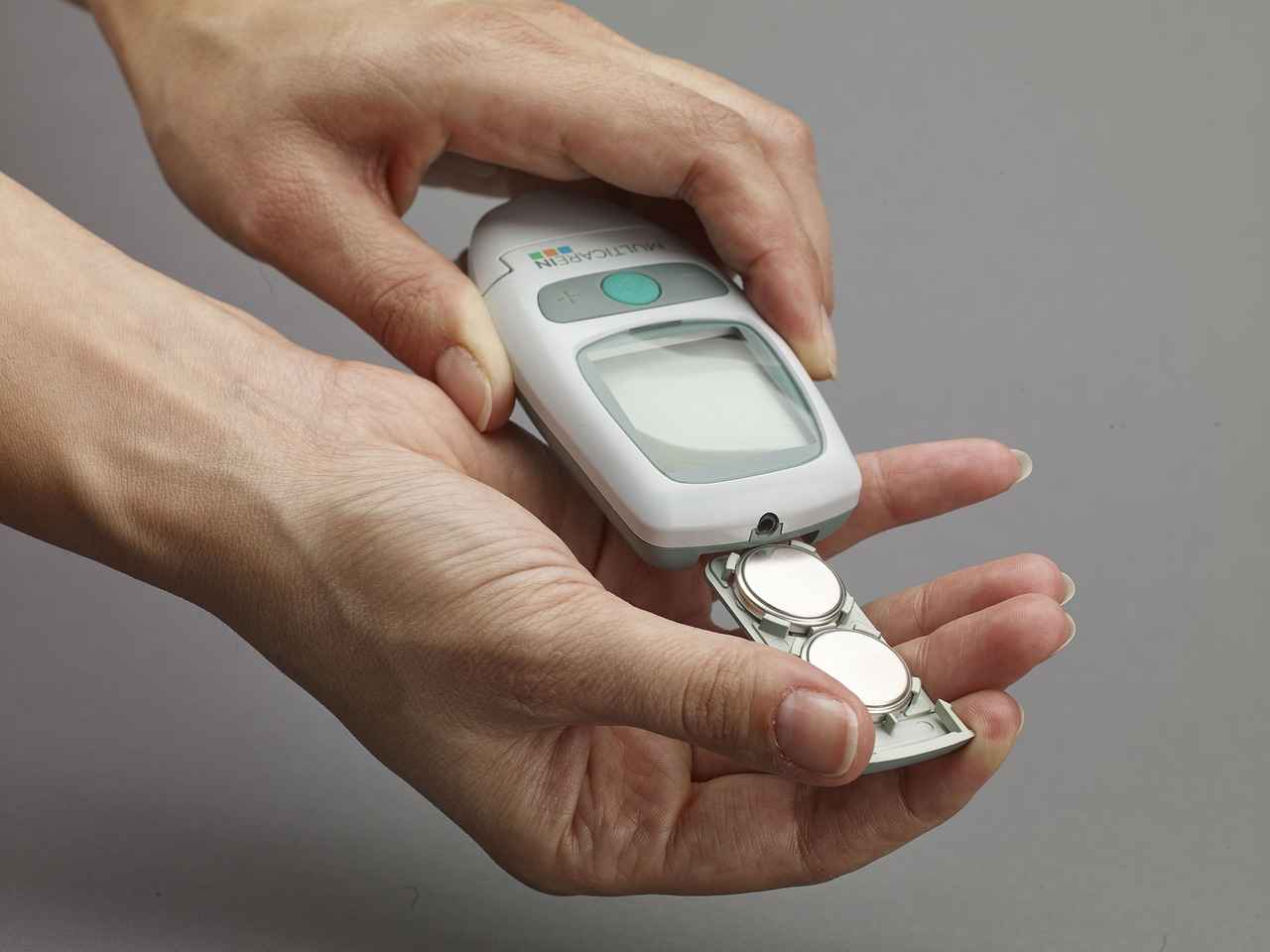
Why is Fasting Important for Blood Tests?
Fasting plays a critical role in ensuring the accuracy of various blood tests. When we talk about fasting, we refer to the practice of abstaining from food and sometimes drink for a specified period before undergoing medical testing. This is particularly significant for tests that measure glucose and lipid levels, as fasting helps eliminate factors that could skew the results.
One of the primary reasons fasting is essential is that it allows for a baseline measurement of substances in the blood without interference from recent food intake. For example, after eating, the body’s glucose levels can spike, which may lead to misleading results in tests that assess blood sugar levels. Similarly, lipid levels can fluctuate significantly based on dietary fat consumption, making it crucial to have a fasting period before testing.
During fasting, the body enters a state where it relies on stored energy, allowing for more accurate readings of metabolic processes. This is particularly important for tests related to diabetes and cholesterol management. For instance, a fasting blood glucose test is a standard procedure for diagnosing diabetes, where even a slight deviation in results can lead to misdiagnosis and inappropriate treatment plans.
Moreover, fasting helps healthcare providers distinguish between normal and abnormal levels of various substances in the blood. For example, the lipid panel, which measures cholesterol and triglycerides, is more reliable when performed after fasting. Non-fasted tests can yield falsely elevated levels, which may prompt unnecessary interventions.
Another aspect of fasting is its role in reducing variability in test results. When patients eat or drink before a test, it can introduce numerous variables that complicate the interpretation of results. By adhering to fasting guidelines, patients can help ensure that their test outcomes are as precise as possible, thereby aiding healthcare providers in making informed decisions regarding their health.
It is also important to note that different tests may require different fasting durations. While some may necessitate an overnight fast of 8 to 12 hours, others might have specific requirements. Therefore, it is always advisable for patients to consult their healthcare providers for tailored instructions.
In summary, fasting is not merely a procedural formality; it is a fundamental step that enhances the reliability of blood tests. By eliminating variables that can affect test outcomes, fasting plays a vital role in ensuring accurate diagnoses and effective treatment plans. Understanding the importance of fasting can empower patients to take an active role in their healthcare, leading to better health outcomes.
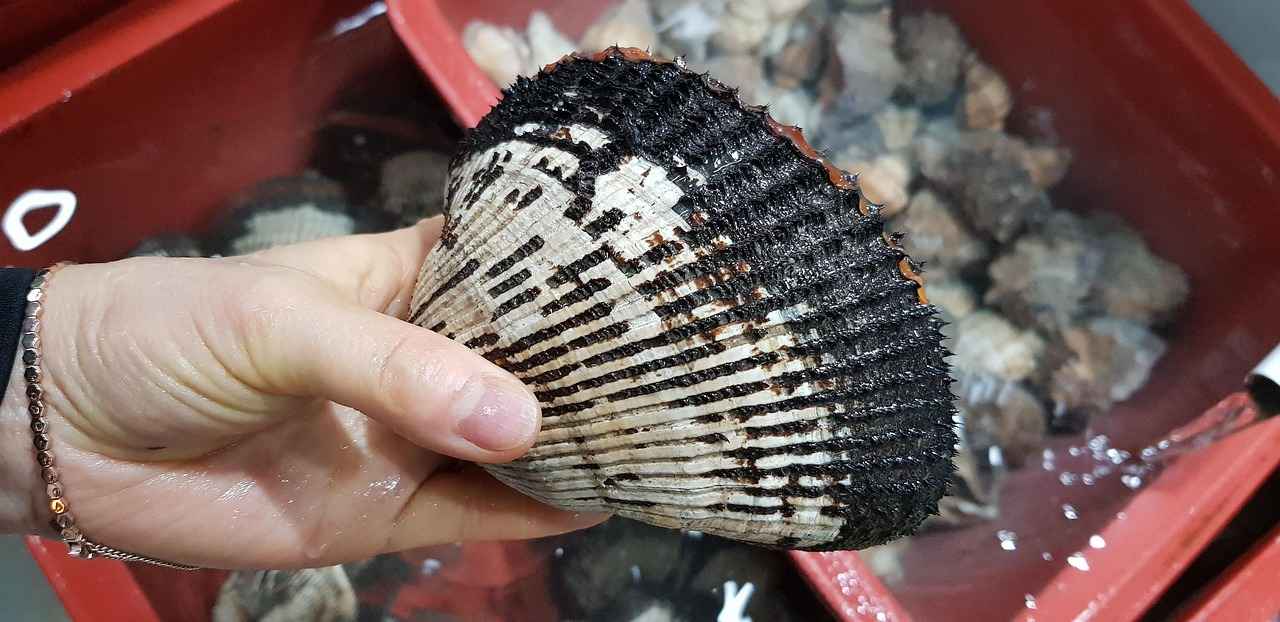
Can You Drink Water Before a Fasted Blood Test?
When preparing for a fasted blood test, many individuals often wonder about the guidelines surrounding water consumption. The consensus among healthcare professionals is that drinking water is generally permissible before undergoing a fasted blood test. This article delves into the nuances of hydration before such tests, providing clarity on common queries and emphasizing the importance of proper preparation.
A fasted blood test is a medical procedure that typically requires patients to refrain from consuming any food or drink for a specified duration, usually between 8 to 12 hours. The primary purpose of fasting is to ensure that the test results are accurate and reliable. Certain tests, particularly those measuring glucose and lipid levels, can be significantly impacted by food and drink intake, making fasting a crucial step.
Many healthcare providers recommend drinking water before a fasted blood test for several reasons:
- Improved Hydration: Staying hydrated can facilitate the blood draw process. Adequate hydration helps to expand blood vessels, making it easier for healthcare professionals to locate veins.
- Reduced Risk of Fainting: Dehydration can lead to dizziness or fainting during blood draws. Drinking water helps maintain blood volume and circulation, minimizing these risks.
While there are no strict limits on the amount of water you can consume, it is advisable to drink it in moderation. Avoiding beverages with additives, such as coffee, tea, or sugary drinks, is essential, as these can potentially alter the test outcomes. Pure, plain water is the best choice to ensure that your test results remain unaffected.
In addition to staying hydrated, it is important to be aware of other substances to avoid before a fasted blood test. Alcohol consumption, for instance, can significantly impact liver function tests and glucose levels. It is generally recommended to abstain from alcohol for at least 24 hours prior to the test. Furthermore, certain medications and dietary supplements may interfere with blood test results. Always consult your healthcare provider regarding any medications you are taking before the test.
Understanding the fasting duration is also critical. Typically, fasting for 8 to 12 hours is recommended, but this may vary based on the specific tests being conducted. Always confirm the appropriate fasting duration with your doctor to ensure the accuracy of your results.
If you do not adhere to the fasting guidelines, it can lead to inaccurate test results, which may result in misdiagnosis or inappropriate treatment plans. Therefore, understanding the implications of fasting is vital for your health.
When scheduling your blood test, consider timing. Morning appointments are often preferred for fasted tests, as they align with overnight fasting and reduce the likelihood of accidental food intake. This can help ensure that your test results are as accurate as possible.
In summary, drinking water before a fasted blood test is not only permissible but also beneficial. Staying hydrated can enhance the blood draw experience and contribute to more reliable test results. Always consult with your healthcare provider for personalized advice and to address any specific concerns regarding your health and testing protocols.
Benefits of Staying Hydrated
Staying hydrated is often overlooked, yet it plays a crucial role in various aspects of health, particularly when it comes to medical procedures like blood tests. One of the primary benefits of adequate hydration is its positive impact on blood flow. When your body is well-hydrated, your blood vessels are more pliable, making it easier for healthcare providers to draw blood. This can significantly enhance the efficiency of the blood draw process, reducing the time and discomfort associated with finding a suitable vein.
Moreover, proper hydration can help mitigate the risk of fainting during blood tests. Many individuals experience anxiety or stress when faced with needles, and dehydration can exacerbate these feelings, leading to dizziness or fainting spells. By drinking enough water before your appointment, you can help maintain your blood pressure and overall well-being, making the experience smoother for both you and the healthcare provider.
In addition to aiding in blood flow and reducing fainting risks, staying hydrated can also improve the quality of your blood sample. Dehydration can lead to thicker blood, which may affect test results. For instance, certain tests may require a specific blood viscosity to yield accurate readings. By ensuring that you are well-hydrated, you contribute to the integrity of the blood sample, allowing for more reliable and precise results.
It’s important to note that while hydration is beneficial, moderation is key. Drinking excessive amounts of water right before the test may lead to discomfort or the need for frequent restroom breaks, which can be inconvenient. Therefore, it’s advisable to consume a reasonable amount of water in the hours leading up to your blood test.
To summarize, the benefits of staying hydrated before a blood test include:
- Improved blood flow: Easier access for blood draws.
- Reduced risk of fainting: Maintaining blood pressure and comfort.
- Enhanced sample quality: Thinner blood for accurate test results.
Incorporating hydration into your pre-test routine is a simple yet effective strategy to enhance the overall experience of blood testing. Always remember to consult with your healthcare provider regarding any specific instructions related to hydration and fasting before your test.
In conclusion, the importance of staying hydrated cannot be overstated. It not only facilitates the procedure but also contributes to your overall health and comfort during medical appointments. By taking this simple step, you can help ensure a more efficient and less stressful experience.
How Much Water Can You Drink?
When preparing for a fasted blood test, understanding how much water you can drink is crucial for ensuring accurate results. While many healthcare professionals encourage hydration, it is essential to adhere to certain guidelines to avoid any potential interference with test outcomes.
Generally, it is recommended to drink plain water in moderation before your blood test. Staying hydrated can facilitate the blood draw process, making it easier for healthcare providers to collect samples. However, excessive consumption of water should be avoided, as it may lead to overhydration, which can dilute blood components and potentially skew test results.
Here are some key points to consider regarding water intake before a fasted blood test:
- Moderation is Key: Aim for a reasonable amount of water—typically, around 8 ounces (about one cup) is sufficient. This amount helps maintain hydration without overdoing it.
- Avoid Additives: Stick to plain water only. Beverages such as coffee, tea, and flavored drinks can contain additives that may alter your test results. It’s important to refrain from these drinks to ensure the integrity of your blood analysis.
- Listen to Your Body: If you feel thirsty, it’s usually a sign that your body needs hydration. However, if you’ve consumed water recently, it’s best to wait until closer to your appointment to drink more.
- Consult Your Doctor: If you have specific health conditions or are unsure about your hydration needs, consult your healthcare provider for personalized recommendations.
Staying hydrated before your blood test can also help reduce anxiety and discomfort during the procedure. Many patients experience nervousness, which can lead to fainting spells. Adequate hydration improves blood flow, making the blood draw smoother and more efficient.
In summary, while there are no strict limits on water intake before a fasted blood test, it is advisable to drink water in moderation. Avoid any beverages with additives, and always consult your healthcare provider if you have any concerns. Proper hydration can enhance the testing experience and contribute to more accurate results.
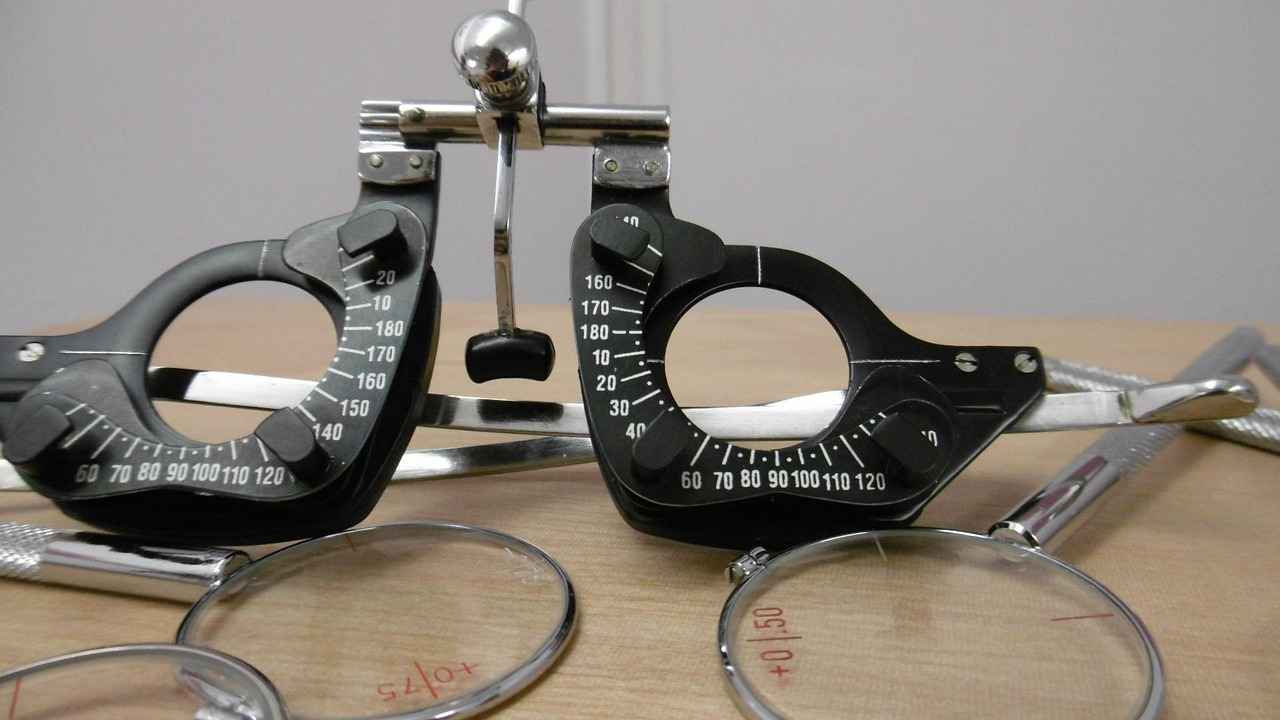
What to Avoid Before a Fasted Blood Test?
When preparing for a fasted blood test, it is essential to understand the substances that should be avoided to ensure accurate results. While many people are aware of the need to abstain from food, there are other factors that can significantly impact the outcomes of your tests.
In addition to food, there are several substances to avoid before a fasted blood test, including alcohol, certain medications, and high-calorie drinks that can skew results. Understanding the implications of these substances is crucial for ensuring the accuracy of your blood test.
Alcohol consumption can have a profound impact on various blood tests. It can affect liver function tests, glucose levels, and even lipid profiles. To avoid skewed results, it is advisable to abstain from alcohol for at least 24 hours prior to your test. This precaution helps in obtaining a clearer picture of your health status.
Many individuals may not realize that certain medications and dietary supplements can interfere with blood test results. For instance, medications like steroids and some antibiotics can alter glucose and cholesterol levels. It is imperative to consult with your healthcare provider regarding any medications you are taking before the test. They may advise you to pause certain medications or provide alternatives to ensure accuracy.
While it may seem harmless, consuming high-calorie drinks, including sugary beverages and energy drinks, can also interfere with test results. These drinks can elevate blood sugar levels and alter lipid readings. It is best to stick to plain water before your test to maintain hydration without affecting your results.
- Caffeinated beverages: Coffee and tea can stimulate metabolic processes, potentially skewing test results.
- Fruit juices: Even 100% fruit juice can introduce sugars that affect glucose readings.
- Snacks and Chewing Gum: These can introduce calories and sugars, which can lead to inaccurate results.
Before your fasted blood test, it is vital to have an open discussion with your healthcare provider. They can provide personalized advice based on your health history and the specific tests being performed. This ensures you are adequately prepared and informed about what to avoid.
In summary, to achieve the most accurate results from your fasted blood test, it is crucial to avoid substances like alcohol, certain medications, and high-calorie drinks. By adhering to these guidelines and consulting with your healthcare provider, you can ensure that your test results reflect your true health status.
Impact of Alcohol on Blood Tests
Understanding the Impact of Alcohol on Blood Tests
When preparing for a blood test, many individuals may overlook the significance of their alcohol consumption. Alcohol can significantly affect various blood test results, particularly those related to liver function and glucose levels. This article delves into how alcohol influences these tests and why it’s essential to abstain from drinking prior to testing.
The Connection Between Alcohol and Liver Function Tests
Liver function tests (LFTs) are crucial for assessing the health of your liver. These tests measure the levels of enzymes and proteins in the blood that indicate how well the liver is functioning. Alcohol consumption can lead to elevated liver enzymes, which may result in misleading conclusions about liver health. For example, even moderate drinking can cause temporary spikes in enzyme levels, leading to unnecessary further testing or misdiagnosis.
Effects on Glucose Levels
Alcohol also has a profound impact on glucose metabolism. When consumed, alcohol can initially cause a rise in blood sugar levels, followed by a significant drop. This fluctuation can complicate the interpretation of tests that measure glucose levels, such as fasting blood glucose or HbA1c tests. Inconsistent glucose readings can hinder the accurate diagnosis of diabetes or other metabolic conditions.
Duration of Abstinence
To ensure accurate blood test results, it is advisable to abstain from alcohol for at least 24 hours before the test. This timeframe allows your body to metabolize and eliminate alcohol from your system, minimizing its impact on liver function and glucose levels. In some cases, healthcare providers may recommend a longer abstinence period, especially for individuals with a history of alcohol use or liver disease.
Understanding the Risks of Ignoring Alcohol Guidelines
Failing to adhere to these recommendations can lead to several risks, including:
- Misinterpretation of Results: Elevated liver enzymes or abnormal glucose levels may prompt unnecessary follow-up tests.
- Delayed Diagnosis: If alcohol consumption skews test results, underlying health issues may remain undetected.
- Inappropriate Treatment Plans: Misdiagnosis can lead to inappropriate treatments, which may exacerbate health problems.
Consultation with Healthcare Professionals
It is crucial to discuss your alcohol consumption habits with your healthcare provider before undergoing blood tests. They can provide personalized guidance and inform you of the specific tests you will be taking. This conversation can help ensure that you receive the most accurate results possible.
Conclusion
In summary, alcohol consumption can significantly impact blood test results, particularly in relation to liver function and glucose levels. To avoid complications and ensure accurate testing, it is essential to abstain from alcohol for at least 24 hours prior to your blood test. Always consult with your healthcare provider for tailored advice regarding your health and testing protocols.
Medications and Supplements
When preparing for a blood test, it is crucial to understand how various factors can impact the accuracy of your results. One significant aspect to consider is the influence of medications and dietary supplements on blood test outcomes. This section will delve into how these substances can interfere with test results and the importance of consulting with your healthcare provider.
Many individuals may not realize that certain medications can alter the results of blood tests. For instance, medications that affect blood sugar levels, cholesterol, or liver function can lead to misleading results. It is essential to disclose all medications you are currently taking, including prescription drugs, over-the-counter medications, and herbal supplements, to your healthcare provider prior to your test.
- Diuretics: These can influence electrolyte levels and kidney function tests.
- Anticoagulants: Medications like warfarin can affect blood clotting tests.
- Statins: These cholesterol-lowering drugs may alter lipid profile results.
- Hormonal medications: Birth control pills and hormone replacement therapies can affect various hormone levels.
Similarly, dietary supplements can also have a significant impact on blood test results. While many people take supplements for health benefits, they may not be aware of their potential effects on laboratory tests. Some supplements can interfere with the metabolism of medications or alter biochemical markers in the blood.
- Vitamin E: High doses can increase bleeding risk and affect coagulation tests.
- Fish Oil: This supplement can alter lipid levels and may affect bleeding time.
- St. John’s Wort: Known for its antidepressant effects, it can interfere with various drugs and alter liver function tests.
To ensure accurate blood test results, it is imperative to have an open dialogue with your healthcare provider about all medications and supplements you are taking. They can provide guidance on whether you should pause certain medications or supplements before your test. This precaution can help avoid any false readings that could lead to misdiagnosis or inappropriate treatment.
In preparation for your blood test, make a comprehensive list of all medications and supplements, including dosages and frequency of use. Share this information with your healthcare provider during your consultation. They may recommend specific fasting guidelines or adjustments to your medication regimen to optimize the accuracy of your test results.
In summary, being aware of the potential interference from medications and dietary supplements is crucial for accurate blood test results. Always consult with your healthcare provider regarding any substances you are taking prior to undergoing a blood test. This proactive approach ensures that your results reflect your true health status, allowing for appropriate medical decisions.
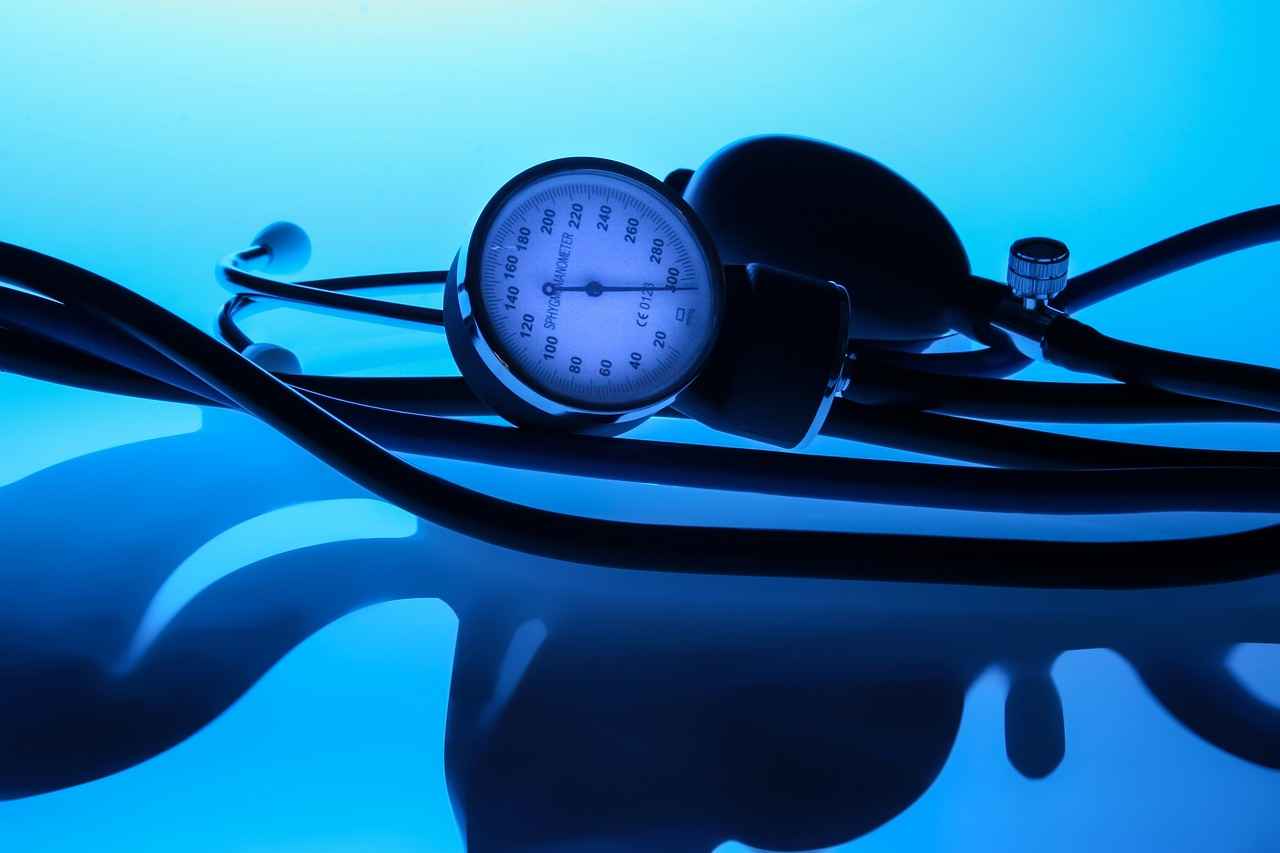
How Long Should You Fast Before a Blood Test?
When preparing for a blood test, one of the most common questions patients have is, “How long should you fast before a blood test?” Fasting is a crucial step that can significantly impact the accuracy of test results. This article will delve into the recommended fasting durations, the reasons behind them, and what you should consider before your appointment.
Typically, fasting for 8 to 12 hours is recommended before a blood test. However, this duration can vary depending on the specific tests being conducted. For instance, tests measuring glucose levels often require a longer fasting period compared to others. Therefore, it is essential to confirm the fasting duration with your healthcare provider to ensure optimal results.
Fasting before a blood test means abstaining from all food and beverages, except for water. The primary purpose of fasting is to eliminate any variables that could skew the results. For example, consuming food can raise blood sugar levels, leading to inaccurate readings in tests that measure glucose or lipid levels. This is particularly critical for individuals being screened for diabetes or cardiovascular issues.
In addition to the standard fasting recommendations, patients should also consider their individual health conditions. For example, those with diabetes may have different fasting requirements due to their need for regular food intake to manage blood sugar levels. It is crucial to discuss any specific health concerns with your doctor prior to the test.
| Test Type | Recommended Fasting Duration |
|---|---|
| Glucose Test | 8-12 hours |
| Lipid Profile | 9-12 hours |
| Basic Metabolic Panel | 8-12 hours |
| Thyroid Function Tests | No fasting required |
Another important aspect to consider is hydration. While fasting, it is generally acceptable to drink water. Staying hydrated can improve blood flow, making it easier for healthcare professionals to draw blood. However, patients should avoid any beverages that contain calories, sugar, or caffeine, as these can interfere with test results.
Failing to adhere to fasting guidelines can lead to inaccurate test results. This can result in misdiagnosis or inappropriate treatment plans, which is why understanding the implications of fasting is vital. If you accidentally consume food or beverages outside of the recommended fasting window, it’s important to inform your healthcare provider before the test.
In summary, while the typical fasting duration for a blood test is between 8 to 12 hours, it is essential to consult with your doctor for personalized advice. They can provide specific guidelines based on your health status and the tests being performed. Proper adherence to fasting protocols is crucial for obtaining accurate and reliable test results, ultimately aiding in effective diagnosis and treatment.
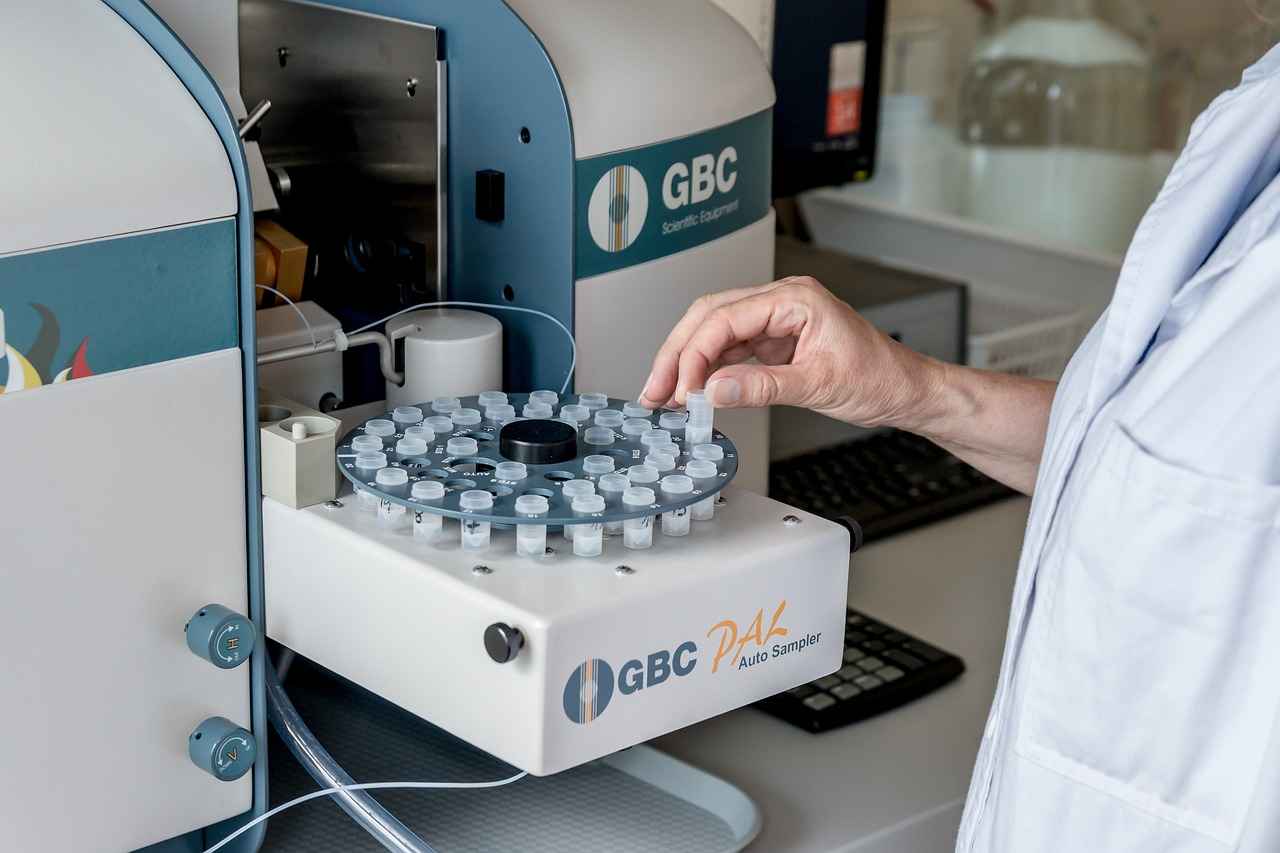
What Happens if You Don’t Fast Properly?
Fasting before a blood test is a critical step that must be taken seriously. Failing to adhere to fasting guidelines can lead to inaccurate test results, which may result in misdiagnosis or inappropriate treatment plans. Understanding the implications of not fasting correctly is vital for anyone undergoing these tests.
When patients do not fast properly, the most immediate consequence is the alteration of blood test results. For instance, glucose levels can spike after eating, leading to a potential misdiagnosis of diabetes. Similarly, lipid profiles, which measure cholesterol and triglycerides, can also be skewed by recent food intake. This can result in a healthcare provider recommending unnecessary medications or lifestyle changes.
In addition to the risk of misdiagnosis, improper fasting can lead to a series of unnecessary follow-up tests. When initial results are inconsistent, healthcare providers may order additional tests to confirm or refute the findings. This not only adds to the patient’s stress but also increases healthcare costs and time spent in the medical system.
Moreover, the effects of not fasting can extend beyond individual tests. For patients with chronic conditions, such as cardiovascular disease or diabetes, inaccurate test results can lead to inappropriate adjustments in treatment plans. This misalignment can exacerbate health issues, leading to further complications.
It’s important to note that the duration of fasting can vary depending on the specific test being conducted. For most standard tests, a fasting period of 8 to 12 hours is recommended. However, some tests may require longer fasting times. Always consult with your healthcare provider to understand the specific requirements for your situation.
Additionally, the impact of medications and supplements should not be overlooked. Some substances can interfere with test results, leading to further complications. Patients are encouraged to discuss their current medications with their healthcare provider to ensure accurate testing outcomes.
In summary, adhering to fasting guidelines is crucial for obtaining reliable blood test results. The implications of failing to do so can be severe, affecting diagnosis and treatment plans. Always follow your healthcare provider’s instructions and ensure you are fully prepared for your blood test.
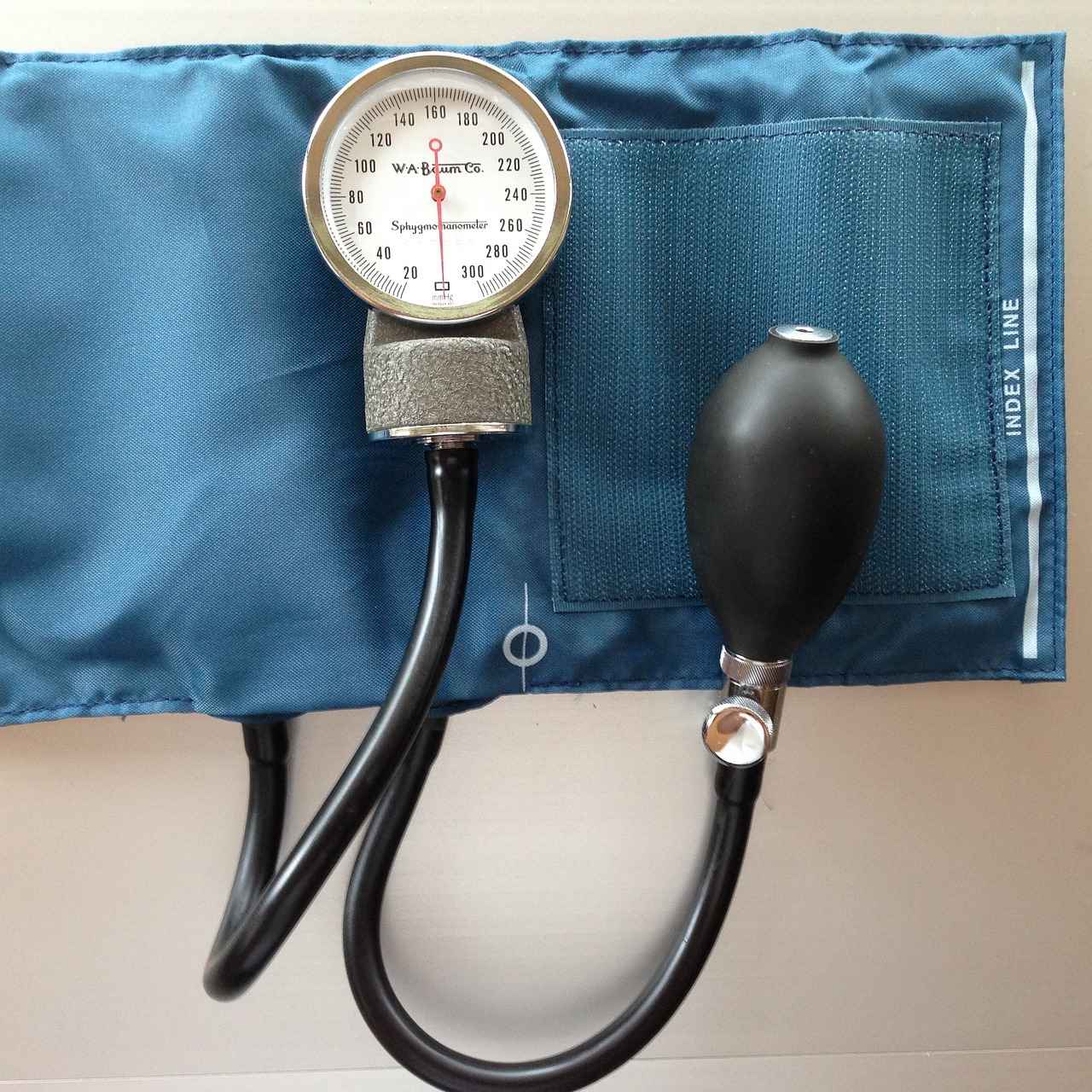
When to Schedule Your Blood Test?
Choosing the right time for your blood test is a critical aspect of ensuring accurate results. Understanding the nuances of timing can help you avoid complications and achieve reliable outcomes. This article delves into the importance of scheduling your blood test, particularly focusing on the benefits of morning appointments and the rationale behind them.
Why Morning Appointments are Recommended
Morning appointments are often suggested for fasted blood tests for several reasons. Firstly, they align with the natural overnight fasting period. By scheduling your test in the morning, you can easily adhere to the required fasting duration, which is typically between 8 to 12 hours. This helps in eliminating any risk of accidental food intake that could skew your results.
Impact of Food Intake on Test Results
Consuming food or beverages before a blood test can lead to inaccurate measurements, particularly in tests assessing glucose and lipid levels. For instance, a meal high in carbohydrates can elevate blood sugar levels, leading to a misleading diagnosis of diabetes. Similarly, fatty foods can alter lipid profiles, resulting in incorrect assessments of heart health. Therefore, the timing of your appointment plays a crucial role in mitigating these risks.
Reducing Anxiety and Stress
Scheduling your blood test in the morning can also help reduce anxiety and stress. Many individuals feel apprehensive about blood draws, and having the test done early in the day allows you to get it over with sooner. This can lead to a more relaxed day ahead, without the looming worry of an impending medical procedure.
Considerations for Specific Tests
While morning appointments are generally beneficial, it’s essential to note that some tests may have different requirements. For example, certain hormone level tests may need to be conducted at specific times throughout the day. Always consult your healthcare provider for guidance tailored to your unique situation and the specific tests you are undergoing.
Hydration Before Your Appointment
Another important aspect to consider is hydration. While fasting typically means abstaining from food and certain beverages, most healthcare professionals allow plain water consumption. Staying hydrated can facilitate a smoother blood draw, improving blood flow and reducing the likelihood of complications such as fainting. However, it’s advisable to avoid any flavored or caffeinated drinks that could interfere with test results.
Planning Ahead: What to Avoid
In addition to food and beverages, it’s crucial to avoid certain substances before your blood test. Alcohol, for example, can impact liver function tests and glucose levels. It is generally recommended to refrain from alcohol consumption for at least 24 hours prior to your appointment. Additionally, some medications and supplements may alter test results, so always discuss your medication regimen with your healthcare provider before your test.
Final Thoughts on Timing Your Blood Test
In conclusion, the timing of your blood test is a vital factor that can significantly influence the accuracy of your results. Morning appointments are often the best choice for fasted tests, allowing for a natural alignment with overnight fasting and minimizing the risk of food intake. Always consult with your healthcare provider for personalized advice and to ensure that you are fully prepared for your test. By following these guidelines, you can help ensure that your blood test results are as accurate and reliable as possible.
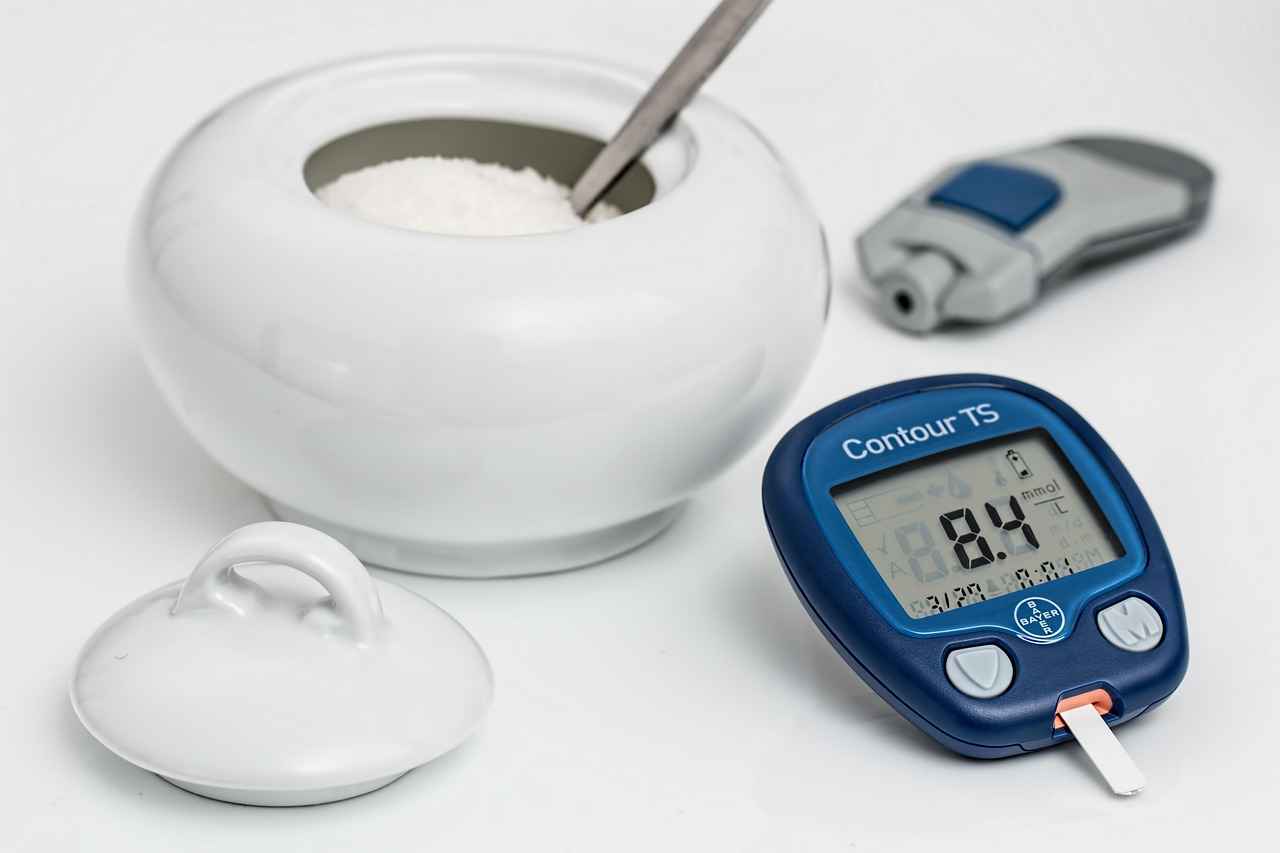
Doctor’s Recommendations on Fasting
When it comes to preparing for a blood test, consulting your doctor is a crucial step that should not be overlooked. Each individual has unique health considerations, and your doctor can offer personalized advice tailored specifically to your needs. This is especially important when it comes to fasting guidelines, as different tests may require varying fasting periods and conditions.
Fasting is not merely about abstaining from food; it also involves understanding what you can and cannot consume before your test. For instance, while water is generally allowed and even encouraged to facilitate blood draw procedures, your doctor will provide the best insight into your specific situation. Hydration is important as it can improve blood flow, making the process smoother and more efficient.
Moreover, your doctor can clarify any misconceptions regarding fasting. Many patients may wonder if they can drink flavored water or other beverages. In most cases, plain water is the safest option. Carbonated drinks, coffee, and tea can introduce variables that may impact test results, so it is best to stick with water unless otherwise directed by your healthcare provider.
In addition to dietary restrictions, your doctor may address any medications or supplements you are taking. Some substances can interfere with blood test outcomes, and having an open discussion about these can prevent potential inaccuracies. For example, certain over-the-counter medications and herbal supplements could skew results, leading to misinterpretations of your health status.
Understanding the specific tests you will undergo is also vital. For example, fasting for a glucose test may require a different approach than fasting for a lipid panel. Your doctor can explain the purpose of each test and why fasting is necessary, helping you grasp the importance of following their recommendations closely.
Timing is another critical factor that your doctor will help you navigate. Most recommendations suggest fasting for 8 to 12 hours before a blood test, but this can vary depending on the tests being performed. Morning appointments are often ideal, as they align with overnight fasting and minimize the risk of accidental food intake.
Failing to adhere to fasting guidelines can have significant consequences. Inaccurate test results may lead to misdiagnosis or inappropriate treatment plans. Therefore, understanding the implications of not following your doctor’s advice is essential for your health and well-being.
In summary, consulting your doctor for personalized fasting advice is a fundamental step in preparing for a blood test. They will provide you with specific guidelines based on your health status and the tests being performed. By following their recommendations, you can ensure that your blood test results are as accurate as possible, allowing for effective diagnosis and treatment.
Frequently Asked Questions
- Can I drink water before my fasted blood test?
Yes, most healthcare professionals recommend drinking plain water before a fasted blood test. Staying hydrated can actually help with the blood draw process!
- How much water is safe to drink before the test?
While there are no strict limits, it’s best to drink water in moderation. Avoid any beverages with additives like coffee or tea, as they might affect your test results.
- What should I avoid before the test?
In addition to food, steer clear of alcohol, certain medications, and high-calorie drinks. These can skew your results, so it’s wise to check with your doctor if you’re unsure.
- How long should I fast before a blood test?
Typically, fasting for 8 to 12 hours is recommended, but this can vary depending on the specific tests. Always confirm the fasting duration with your healthcare provider.
- What if I don’t fast properly?
Not adhering to fasting guidelines can lead to inaccurate results, which might result in misdiagnosis or inappropriate treatment. It’s crucial to follow the instructions closely!
